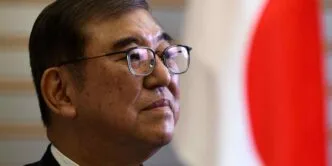For the last two years, the battle for the Senate has focused on a handful of closely watched states. But weeks before Election Day, Democrats and Republicans are pouring money into the edges of their battleground map, placing bets on long-shot chances to flip an extra seat into their column.
And they are long-shot races, especially during a presidential election, when ticket-splitting isn’t as common as it used to be. In some cases, challengers have outraised incumbents. But in all four races — Florida, Texas, Nebraska and Mland — one of the presidential candidates, former President Donald Trump or Vice President Kamala Harris, is expected to carry the state easily, making it even harder for a member of the other party to flip the seat.
Still, the parties see slivers of opportunity. In Mland, Republicans are hoping popular former Gov. Larry Hogan can pull in the crossover independents and Democrats who helped him win two terms. In Florida and Texas, Democrats are focusing on state abortion bans to try to push beyond their recent losses in those states. And in Nebraska, an independent is running an unusual challenge against a two-term Republican senator.
In Texas and Florida, the Democratic Senatorial Campaign Committee last month said it would to be launching a “multi-million dollar investment” in TV ad spending.
Those races, where Democratic Rep. Colin Allred is challenging GOP Sen. Ted Cruz in the Lone Star State and former Democratic Rep. Debbie Mucarsel-Powell is challenging GOP Sen. Rick Scott in the Sunshine State, have certainly received their fair share of national attention.
Allred in particular has massively outraised Cruz, propelling his campaign to spend $23 million on campaign ads in September and almost $10 million in the first 10 days of October alone, according to AdImpact, an ad-tracking firm.
Cruz’s campaign spent almost $5 million on ads in September and $4 million in the first 10 days of October. But super PAC spending in his favor and ads paid for by his leadership PAC and the state’s Republican Party boosted him too.
The spending disparity is less stark in Florida, where in September Mucarsel-Powell’s campaign spent $8.6 million and Scott’s campaign spent $2.1 million. In the first 10 days of October, the former congresswoman’s campaign had already spent over $5 million, while Scott, a wealthy businessman who has poured his own money into his political campaigns, spent just $1.7 million.
But Scott’s campaign has booked an additional $5.2 million in campaign ads through Election Day, with more to come.
Despite promises to spend millions in both states, the DSCC has so far not made any ad reservations in Florida. And in Texas, it booked a coordinated ad buy alongside Allred’s campaign worth $1.6 million.
“There’s been a lot of money spent in Texas, but the truth is, if [Democrats] are going to compete, they’re going to need to spend a lot more than they’ve spent. This is true in Florida too,” a national Republican strategist told NBC News, pouring cold water on the idea that Democrats are seeing a late surge in their favor in either state.
Still, strategists on the ground point to several factors outside of spending as reasons why these races could shift in their favor.
In Florida, voters will have their say in November on two ballot measures that Democrats say could boost turnout in their favor — one that would legalize marijuana and one that would expand abortion access. Florida currently bans abortion after six weeks, as does Texas.













